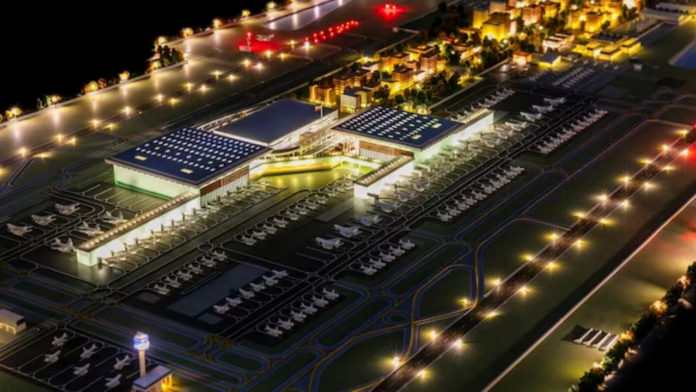India is expanding its manufacturing industry under the flagship of mega plans such as Make in India and Self-Reliant India (Aatm Nirbhar Bharat). A burgeoning manufacturing industry in tandem with steep growth in the e-commerce sector and a rise in 3rd party logistics is also feeding into the demand for increased warehouses and logistics real estate in India.
At present, the total size of warehousing is close to 330 million Sq Ft. and is expected to reach 700 million sq ft by 2030, growing at a CAGR of 11.3%. As the South Asian economy will continue to move forward at an accelerated pace across a host of sectors such as pharma, automotive, food processing, smartphones electronic appliances, chemicals, textile, agribusiness, etc. the demand for warehouses, cold storage alongside allied entities such as container depots, dry ports, container freight stations, etc. will climb upwards.
Noida’s Warehousing Sector Gaining Momentum
Noida and its nearby regions of Greater Noida and Ghaziabad have a relatively lower share in India’s overall warehouse market. The aggregate value of the total warehouse in the region is near around 7.2 million sq ft. However, the industry is growing at a steady pace in recent years.
Noida is emerging as a popular manufacturing hub in North India. In addition to the IT and service sector, the region has witnessed remarkable growth in smartphone, textile, chemicals, handicrafts, and processed food manufacturing. Between 2016 and 2022, Noida received an investment of around USD 12.5 billion from the private sector, making it one of the most attractive regions in North India.
Adani Group is setting up a couple of data centers at Noida following an investment of USD 1.02 billion. Ikea is making massive investments in Noida, which include malls, warehouses, hotels, service centers, etc. This is Ikea’s biggest investment to date in India.
Lulu Hypermarket has announced an export-oriented unit in Noida while Patanjali is investing more than USD 0.82 billion to set up a massive food park in Greater Noida. Meanwhile, Samsung has also doubled its capacity at its Noida center to 120 million units annually. Noida is one of the largest mobile manufacturing hubs, not just in India but worldwide.
As Noida’s industrial profile grows, its warehousing and other allied industry is also witnessing a shot in the arm. Noida’s other advantage is proximity to two of the active Inland Container Depots (ICD) in NCR. It is closely situated with the Tughlakabad depot at Delhi with a capacity of over 250,000 TEUs/ yearly. Likewise, the CONCOR-run Dadri depot is also situated in the vicinity. Noida Region is also linked with DMIC and AKIC and is part of the WDFC.
Jewar Airport is set to provide Impetus
The much-talked-about Jewar or the Noida International Airport alongside other mega infrastructure projects are expected to give further impetus to the Noida region’s burgeoning warehouse industry. Jewar will start operating in 2024. While the initial passenger capacity will be 6-9 million annually, the airport project will cater to 60-70 million passengers in another 20 years, becoming the largest airport in India.
Besides passenger traffic, the mega project will also give a facelift to the warehousing industry in Noida. There will be dedicated cargo handling zones with a capacity of 2 million tons, which will be raised to 8 million in the future.
Looking at the sheer size of the project, other large-scale investments will gravitate toward the region. Already Adani Logistics has requested to allocate them 700 acres of land for warehousing. The estimated cost of the project is roughly USD 760 million. Other big-ticket investments will follow soon.
Around 45 km from the USD 4.9 billion airport project, another mega-investment is taking shape. In Dadri, the local Greater Noida Authority in partnership with DMIC is building a Multimodal Logistic Hub (MMLH) for a cost of around USD 1.2 billion. The MMLH will comprise warehouses, railway tracks & yards, trucking yards, customer clearance facilities, etc. It is also linked to a dedicated freight station via 3 Km Road. In Greater Noida in Boraki, a Multi-Modal Transport Hub is also getting developed, spread across 450 acres. The hub will consist of interstate bus services & metro lines alongside hotels & retails.
Large-scale infrastructure projects will draw increased investments in the warehousing industry.


